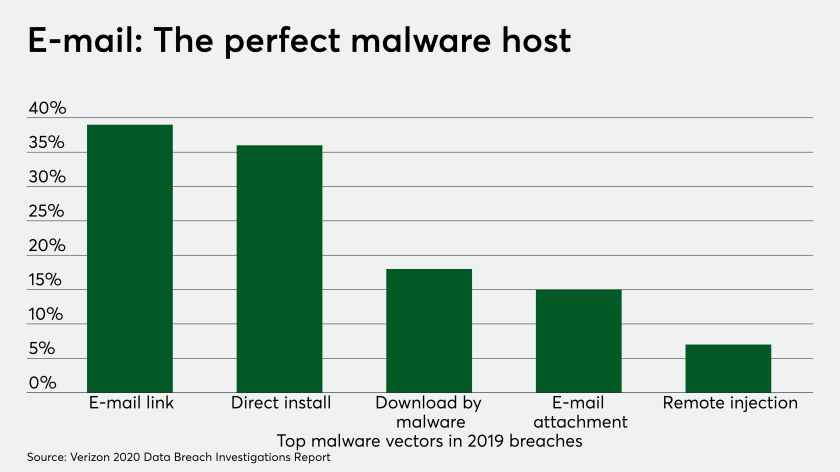The work-from-home phenomenon has triggered a fresh frustration for U.S. corporations: Americans are blowing the whistle on their employers like never before.
The Division of Enforcement's annual report also highlights non-pandemic-related issues that arose in fiscal year 2020 and strategic operational changes.
As many businesses and consumers have been forced to deal with the difficult conditions thrust upon them by the COVID-19 pandemic, so too have fraudsters needed to make adjustments just to continue their life of crime.
The “new normal” of COVID-19-influenced retail is actively being exploited by fraudsters, as LexisNexis Risk Solutions finds fraud costs for U.S. retailers rising in 2020 by 7.3% over last year’s data.
The bank says fraud attempts involving commercial wire transfers have escalated since the outbreak began. It's training employees and customers how to head off the often hard-to-detect scams.
Peoples Bank in Arkansas and Main Street Bank in Massachusetts are getting smarter about spotting suspicious transactions tied to unemployment benefit fraud as well as warning customers what to watch out for.
Fraudsters are licking their chops at the prospect of businesses and financial services extending remote working because of the coronavirus pandemic.
As many countries and U.S. states now begin to lift stay-at-home orders, fraudsters too are being unleashed to return to familiar targets such as bank branches, ATMs and retail stores.
Grant Thornton CEO Brad Preber and principal Linda Miller, who leads the firm's fraud and financial crimes practice, offer strategies to help businesses protect themselves from fraud amid the pandemic environment.
Artificial intelligence and machine learning are some examples of technology available now to help combat money launderers profiting from the pandemic.

















